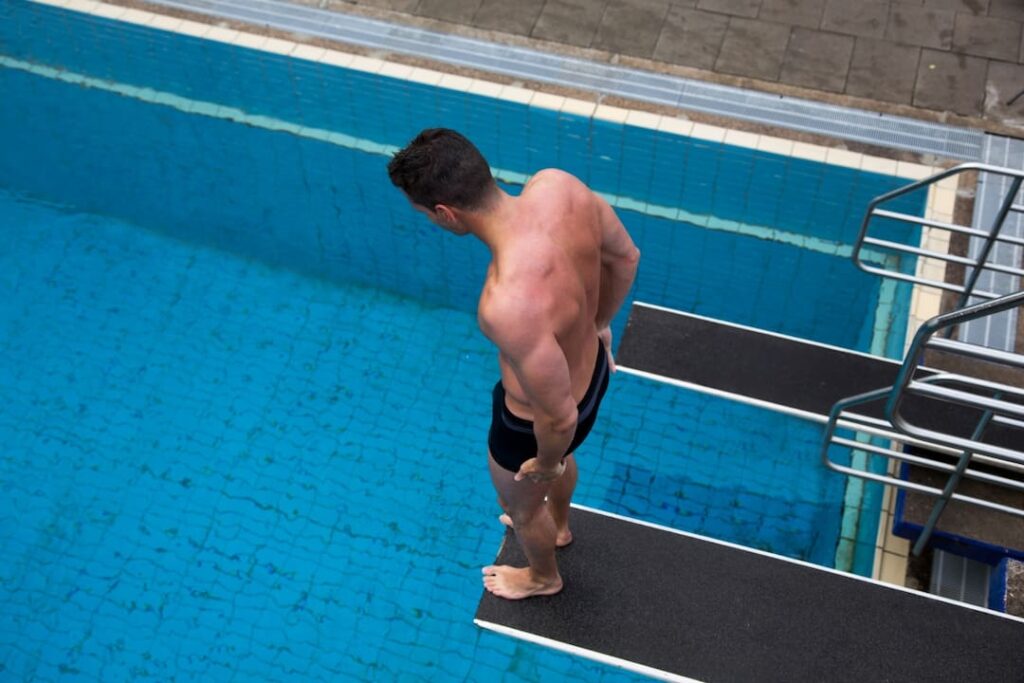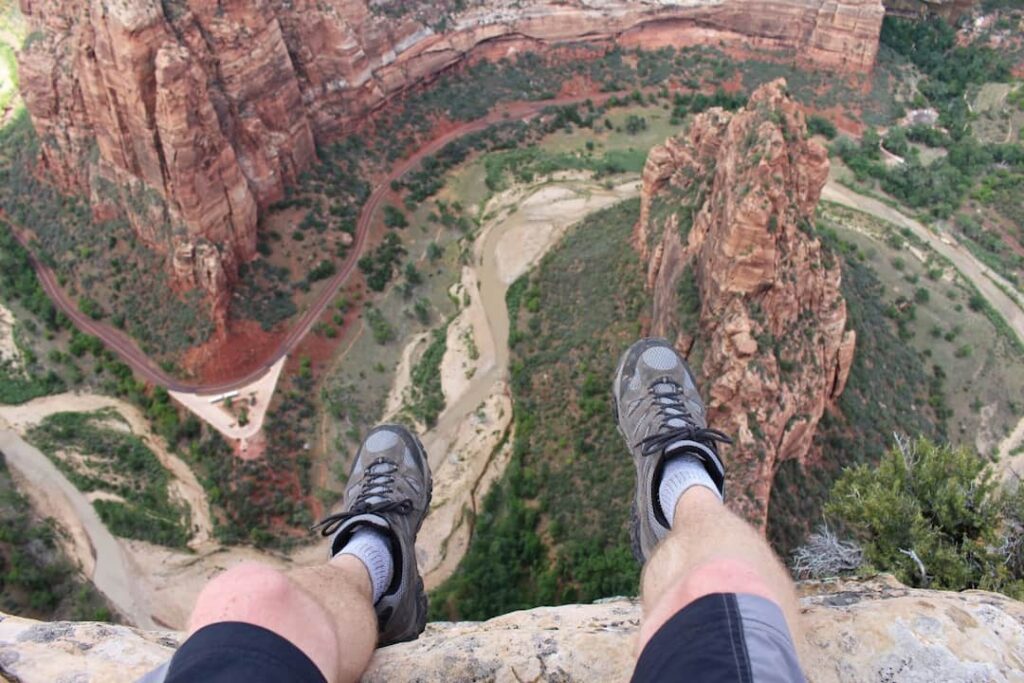Does the thought of riding a rollercoaster send shivers down your spine? Are you afraid to visit the roof of your office even when all your colleagues do it to catch a breather? Or do you get sweaty palms with the thought of crossing a bridge or climbing a ladder?
If you experience any of the above feelings, you are suffering from fear of heights. Just like other fears and phobias is a type of anxiety that can affect the quality of your life. The fear of heights, also known as acrophobia, can cause severe distress, anxiety, and panic in an individual. Individuals struggling with fear of heights can also experience increased heartbeat, profuse sweating, and tightness of the chest while on a high surface.
The fear of heights can also affect your recreational activities. You may find that you avoid taking the escalators or an elevator, etc. If you work in tall buildings, you might find yourself uncomfortable with offices on the higher floors.
How does hypnotherapy help you to overcome the fear of heights?
If you are looking for a hypnosis audio session, How To Overcome Fear of Heights is an excellent pick. We like that the session helps you calm down your response when you are in high places.
As you listen to the audio session, it helps you feel you are in complete control of yourself. You develop more trust in yourself and your abilities, and you feel calmer around heights.
Hypnotherapy for Fear of Heights
Is the fear of heights something that we are born with? As you may already know, there are two phobias that a child can be born with. That is the fear of falling over and the fear of loud noises. However, babies can also be afraid of crawling or walking on glass floors which shows the fear of height is innate rather than learned.
What is certain is that the fear of heights is caused by negative and unhelpful thoughts in your subconscious mind. A person with a fear of heights fears bridges, tall buildings, standing near a window, balconies, cable cars, standing on a chair, etc.
The negative thoughts in the individual’s mind may be due to personal safety, weakness of the structure, losing balance, etc.
For example, if you are in a lift, you can be concerned that the strong ropes holding the lift can break. If the physical anxiety symptoms are intense, the person can fear having a heart attack or fear of dizziness.
If you have a fear of heights, you can experience rapid thoughts and physical symptoms. The thoughts come first, and then you experience physical symptoms.
Symptoms of Fear of Heights
People have different symptoms for fear of heights. However, the most common symptoms include:
- Rapid breathing
- Nausea
- Sweating
- Agitation
- Dizziness
- Fogginess
- Blurred vision
- Shaking
- Feeling sick
- Stomach distress
- Feeling faint
- Palpitation
- A sense of mental collapse
Difference Between Vertigo and Fear of Heights
Fear of heights and vertigo are very different. Fear of heights refers to being afraid when you are at high places and wondering what would happen.
On the other hand, vertigo refers to the feeling of dizziness. You feel like your head is spinning or the earth is tilting, or the things around you are moving.
There are two types of vertigo, both of which are enhanced by your fear of heights. First is subjective vertigo, where the subject feels like they are swaying or moving. Secondly, objective vertigo is where a person feels like the objects around them are moving.
Vertigo can be caused by the brain’s functioning, medications such as antidepressants, infections, and ear abnormalities. There are also suggestions that a negative experience with heights can cause it.
Suffering from vertigo or fear of heights can affect various aspects of your life. For instance, it can inhibit you from doing some jobs that involve heights. It can also affect your choice of where to live. You may decide not to live in a flat on a high floor.

Causes of Fear of Heights
Your subconscious mind is responsible for your feelings, thoughts, and behaviors. Unhelpful thoughts in our unconscious mind mainly cause our fear of heights. The thoughts are trying to protect you by developing a self-defense mechanism. On the other hand, the thoughts could be a result of traumatic experiences you may have had in the past.
For instance, if you were involved in a dangerous situation or you witnessed one, the brain will try to protect you in the future by creating such thoughts. The thoughts come if you notice something similar to what happened in the past.
Since the fear of heights results from unhelpful thoughts in your subconscious, hypnotherapy can be an effective remedy. Hypnosis looks at a subconscious response or the negative thoughts in your brain and tries to change them to something positive.
The fear of heights is not an anxiety disorder that you experience throughout the day. It only appears when you encounter a situation that your subconscious considers similar to an experience that induced fear of heights. If your subconscious thinks you are in a similar situation, it creates the thoughts that create anxiety symptoms related to fear of heights.
Diagnosing Fear of Heights
You don’t necessarily need to visit a doctor or a therapist to diagnose the fear of heights. Perhaps you already know you’ve had an unpleasant experience with heights that may trigger the symptoms you have now.
However, you can seek medical help to determine what you are experiencing is vertigo, fear of heights, or visual height intolerance (vHI).
How Hypnosis Can Help Overcome Fear of Heights
Hypnosis incorporates various techniques that help treat fears. The hypnotherapist uses positive suggestions to tap into your subconscious mind where your fears lie. The therapist then helps you separate your fear from mental images and disassociate from the emotions of terror.
Additionally, your therapist will help you learn a new response to your fear which helps eliminate the fear. Hypnosis helps you in overcoming the panic and anxieties that you’d associate with heights.

Self Hypnosis and Cognitive Behavior Therapy (CBT)
Cognitive Behavioral Therapy can also be used together with self-hypnosis to treat your fear of heights. The treatment may involve exposure therapy within your setting. Hypnotherapy can be a quicker and more effective treatment for fear of heights than cognitive-behavioral therapy (CBT).
Exposure therapy could involve directly facing your fears. For instance, you may have to walk over a bridge, go to the roof of a tall building, etc. However, the exposure should be done in a measured way.
If you are working with a virtual reality therapist, they can use virtual reality (VR) exposure therapy for your fear of heights. They can use software and Google to help you imagine yourself in situations that trigger your fear of heights. However, virtual reality may be a gimmick. Since the mind is a powerful tool, you will always know that what you are watching is not the real thing.

Can you use medication to treat your fear of heights?
Sometimes medication can come in handy, especially if the anxiety is intense. You can visit your general practitioner and discuss the medication option. There are several drugs or medications that you can use to treat your fear of heights. For instance, the doctor can describe anti-depression drugs, anxiety drugs, or beta-blockers.
Medication can be helpful as a short-term intervention. They can help to minimize your immediate anxiety problems. For instance, you can use beta-blockers to reduce symptoms if you feel nervous, panic, and have a racing heartbeat.
You can use different methods of hypnosis to treat your fear of heights. These include:
- Traditional hypnosis. In this method, the hypnotherapist uses post-hypnotic suggestions to redirect your thoughts about heights. However, this method can be inadequate because people think independently and can unconsciously refuse suggestions.
- Relaxation hypnosis. This method combines various hypnotherapy techniques with Neuro-Linguistic Programming (NLP) techniques. Relaxation offers a starting point for advanced versions of hypnotherapy. If your mind is relaxed, the stimulus from your hypnotherapist can have a positive effect.
- Ericksonian hypnosis. This method is an advanced version of hypnosis developed by Milton Erickson, MD. Instead of using direct suggestions by the hypnotherapist, Ericksonian hypnosis uses suggestions hidden in metaphors, conversations, and stories. Such kinds of suggestions cannot be rejected as your subconscious mind doesn’t identify them. The indirect suggestions help you to deal with your phobias more easily.
Final Thoughts
If you get scared when in high places such as on top of a building, over a bridge, etc., you may be suffering from fear of heights. Fear of heights comes with various symptoms, including sweaty palms, nervousness, anxiety, panic, etc. The fear of heights can affect the job you do and where you live. For example, you may refuse to rent an apartment on the topmost floor of a tall building.
Hypnotherapy is an effective way of dealing with your fear of thoughts. If your anxiety symptoms are intense, then your doctor can prescribe appropriate medication.

